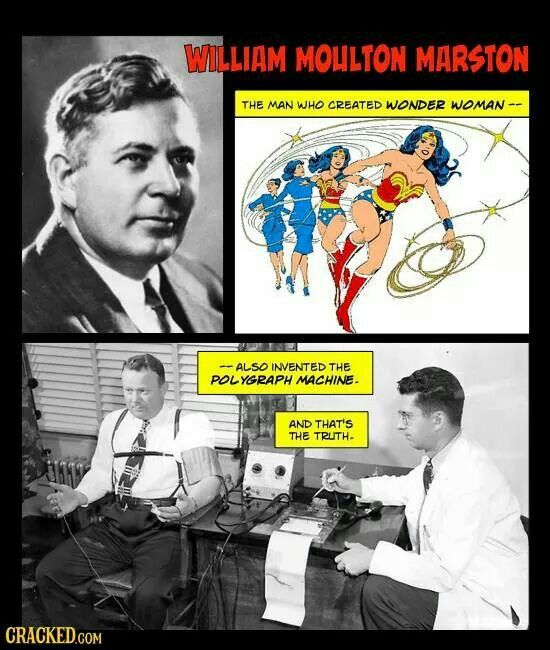The History behind D.I.S.C. and its Value for Personal to Professional Development
Sep 22, 2023
D.I.S.C. personality assessments have gained widespread recognition and popularity in recent years, revolutionizing the way individuals understand themselves and interact with others. In this blog post, we will delve into the history behind D.I.S.C. assessments and explore why they are so valuable for personal development.
1. The Origins of D.I.S.C.:
D.I.S.C. assessments trace their roots back to the early 20th century when psychologist William Moulton Marston developed the DISC theory. Marston believed that human behavior could be categorized into four primary dimensions: Dominance (D), Influence (I), Steadiness (S), and Conscientiousness (C). His work laid the foundation for the modern D.I.S.C. assessments we use today.
A few interesting facts about William Marston:
Beyond his contributions to the field of psychology, William Moulton Marston, the creator of D.I.S.C. personality assessments, led a truly remarkable life. From inventing the polygraph machine to creating the iconic Wonder Woman character, Marston's legacy extends far beyond his groundbreaking work in behavioral psychology.
One of the most intriguing aspects of William Marston's life is his invention of the polygraph machine, also known as the lie detector. Marston's background in psychology and his fascination with human behavior led him to develop this groundbreaking device in the early 1920s. The polygraph machine measures physiological responses such as blood pressure, heart rate, and respiration to detect signs of deception. This invention revolutionized criminal investigations and became a significant tool in the field of forensic psychology.
In addition to his contributions to psychology, Marston is also known as the creator of the iconic Wonder Woman character as one of DC Comics superheroes. Inspired by the suffragette movement and his belief in female empowerment, Marston introduced Wonder Woman to the world in 1941. The character quickly became a symbol of strength, justice, and equality, breaking gender stereotypes and inspiring generations of readers.

Marston's creation of Wonder Woman showcased his progressive views on gender roles and his commitment to promoting female empowerment, yet, as noted by Susana Polo, in her article: "Wonder woman's lasso grants her a unique power: forgiveness", noted that William Marston, "the polyamorous psychologist and inventor saw Wonder Woman stories as an opportunity to voice his view of a more harmonious way for men and women to live together. Core to his philosophy was the concept of “loving submission,” and the idea that only those who have the capacity to willingly submit to a loving authority should ask for the same submission from other people." Wonder Woman's primary weapon was her Lasso of Truth.
2. The Value of Self-Awareness:
D.I.S.C. assessments provide individuals with a valuable opportunity for self-reflection and self-awareness. By understanding their own behavioral tendencies and preferences, individuals can gain insights into their strengths, weaknesses, and areas for personal growth. This self-awareness is a crucial first step towards personal development.
3. Improved Communication and Relationships:
One of the key benefits of D.I.S.C. assessments is their ability to enhance communication and relationships. By understanding their own communication style and the styles of others, individuals can adapt their approach to effectively connect with and influence others. This leads to improved teamwork, reduced conflicts, and stronger relationships both personally and professionally.
4. Tailored Personal Development:
D.I.S.C. assessments provide individuals with a roadmap for personal development. By identifying their behavioral tendencies, individuals can focus on developing specific skills and traits that align with their goals. For example, someone with a high "D" score may work on developing patience and active listening skills, while someone with a high "I" score may focus on building assertiveness and decision-making abilities.
5. Leadership Development:
D.I.S.C. assessments are particularly valuable for leadership development. By understanding their own leadership style and the styles of their team members, leaders can adapt their approach to effectively motivate and guide their team. This leads to increased employee engagement, improved productivity, and a positive work culture.
6. Conflict Resolution and Emotional Intelligence:
D.I.S.C. assessments also contribute to conflict resolution and emotional intelligence. By recognizing and understanding different behavioral styles, individuals can navigate conflicts more effectively, empathize with others, and respond appropriately to emotional cues. This leads to healthier and more productive relationships, both personally and professionally.
Conclusion:
D.I.S.C. personality assessments have a rich history and offer immense value for personal development. By providing individuals with insights into their behavioral tendencies, D.I.S.C. assessments empower individuals to enhance their communication skills, build stronger relationships, and tailor their personal development journey. Whether it's improving teamwork, developing leadership skills, or resolving conflicts, D.I.S.C. assessments serve as a powerful tool for personal growth and success.
Leverage the resources and courses available through Sandy's Memorable Marketing and apply D.I.S.C. assessments for faster and evergreen results.
Embrace the opportunity to gain self-awareness, enhance your communication skills, and unlock your full potential. Start today by taking your D.I.S.C. assessment today! It only takes about 15-20 minutes to select complete the questionnaire and what you will learn from the results will last a lifetime!
